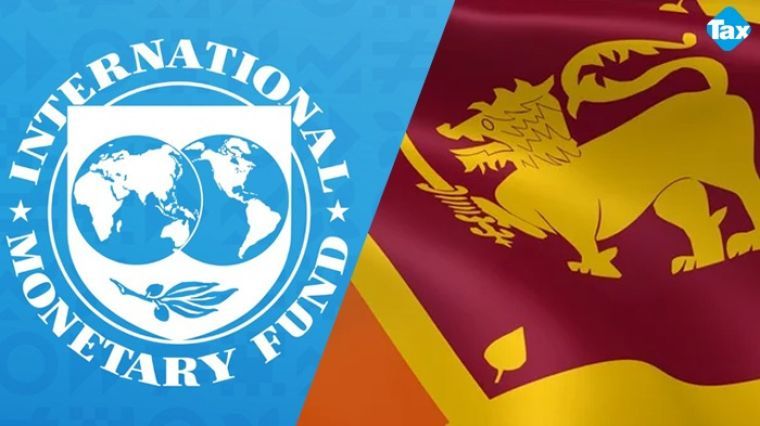Impact of Proposed IMF Tax Reforms on Sri Lankans-12.06.2024

The International Monetary Fund (IMF) has proposed a series of tax reforms for Sri Lanka, effective from January 1, 2025, aimed at achieving fiscal sustainability and a tax-to-GDP ratio of at least 14% by 2026. These reforms include the introduction of new taxes, adjustments to existing ones, and the removal of certain exemptions. Here’s a detailed look at the key reforms and their potential impact on Sri Lankans:
Key Tax Reforms and Their Impact:
-
Imputed Rental Income Tax:
- Introduction: A new tax will be imposed on owner-occupied and vacant residential properties starting April 1, 2025.
- Revenue Impact: Expected to yield 0.15% of GDP in 2025 and 0.4% by 2026.
- Impact on Property Owners: This tax will primarily affect homeowners, particularly those with higher-value properties. It aims to create a fairer tax system but could lead to increased costs for property owners.
-
Value-Added Tax (VAT) Adjustments:
- Rate Increase: VAT will be set at 18% on items currently under the Special Commodity Levy and on the supply of digital services.
- Revenue Impact: Expected to yield 0.08% of GDP.
- Impact on Consumers: The increase in VAT will likely raise the cost of goods and services, affecting consumer prices and spending power.
-
Corporate Income Tax (CIT) Reforms:
- Removal of Exemptions: The CIT exemption on the export of services will be removed.
- Increased Rates: CIT rates on betting and gaming, tobacco, and liquor industries will increase from 40% to 45%.
- Revenue Impact: Expected to yield 0.04% of GDP from the removal of exemptions and 0.08% from increased rates.
- Impact on Businesses: Export service providers and industries such as betting, gaming, tobacco, and liquor will face higher tax burdens, potentially leading to higher prices for consumers in these sectors.
-
Stamp Duty Increase:
- Rate Adjustment: Stamp duties on lease contracts will increase from 0.1% to 0.2%.
- Revenue Impact: Expected to yield 0.03% of GDP.
- Impact on Renters and Lessors: The increase in stamp duties may lead to higher rental costs, impacting both renters and property lessors.
-
Abolition of Simplified VAT (SVAT):
- Removal: The SVAT system will be fully repealed by April 2025.
- VAT Refund System: Ongoing work to fix the VAT refund system to ensure a smooth transition and effective tax compliance post-SVAT repeal.
- Impact on Businesses: Businesses that previously benefited from SVAT will need to adjust to the regular VAT system, potentially increasing their administrative burden and tax liabilities.
-
Import Restrictions and Revenue Measures:
- Lifting Import Restrictions: Expected to raise about 0.8% of GDP from motor vehicles and other imports by 2025.
- Impact on Consumers and Businesses: Lifting import restrictions may lead to an increase in available goods, potentially reducing prices and benefiting consumers. However, it could also impact local industries facing increased competition.
-
VAT Compliance Improvement Program:
- Priority Implementation: A program will be prioritized in 2025 to detect and deter noncompliance.
- Impact on Tax Compliance: This program aims to enhance tax compliance, reduce evasion, and ensure more effective VAT collection, contributing to increased government revenues.
-
Continued Revenue Administration Reforms:
- Strengthening Tax Compliance: Ongoing reforms to strengthen tax compliance will continue.
- Impact on Revenue Collection: These reforms are expected to improve the efficiency and effectiveness of the tax administration, leading to better compliance and higher tax revenues.
-
Fixing the VAT Refund System:
- Preparation for SVAT Repeal: Work has already begun to fix the VAT refund system to ensure the full repeal of the SVAT system by April 2025.
- Impact on Businesses: Ensuring a functional VAT refund system will help businesses transition smoothly from the SVAT system to the regular VAT system, reducing administrative burdens and improving cash flow for businesses that rely on VAT refunds.
Broader Economic Impact:
- Increased Government Revenue: The combination of these measures is designed to ensure the government meets its revenue targets, which is crucial for reducing the fiscal deficit and achieving economic stability.
- Economic Equity: Progressive taxes like the imputed rental income tax aim to create a fairer tax system by ensuring that wealthier individuals contribute a proportionate share of their income to public finances.
- Inflationary Pressures: The increase in VAT and other taxes may lead to higher overall prices, contributing to inflationary pressures in the short term.
- Business Environment: While some businesses will face higher taxes, others may benefit from the removal of import restrictions and increased availability of goods.
Conclusion:
The proposed tax reforms by the IMF are a significant step towards stabilizing our economy and ensuring fiscal sustainability. While they introduce new burdens for property owners, consumers, and businesses, these measures are essential for broadening the tax base and achieving long-term economic stability.
Read More : Extract from IMF Report




